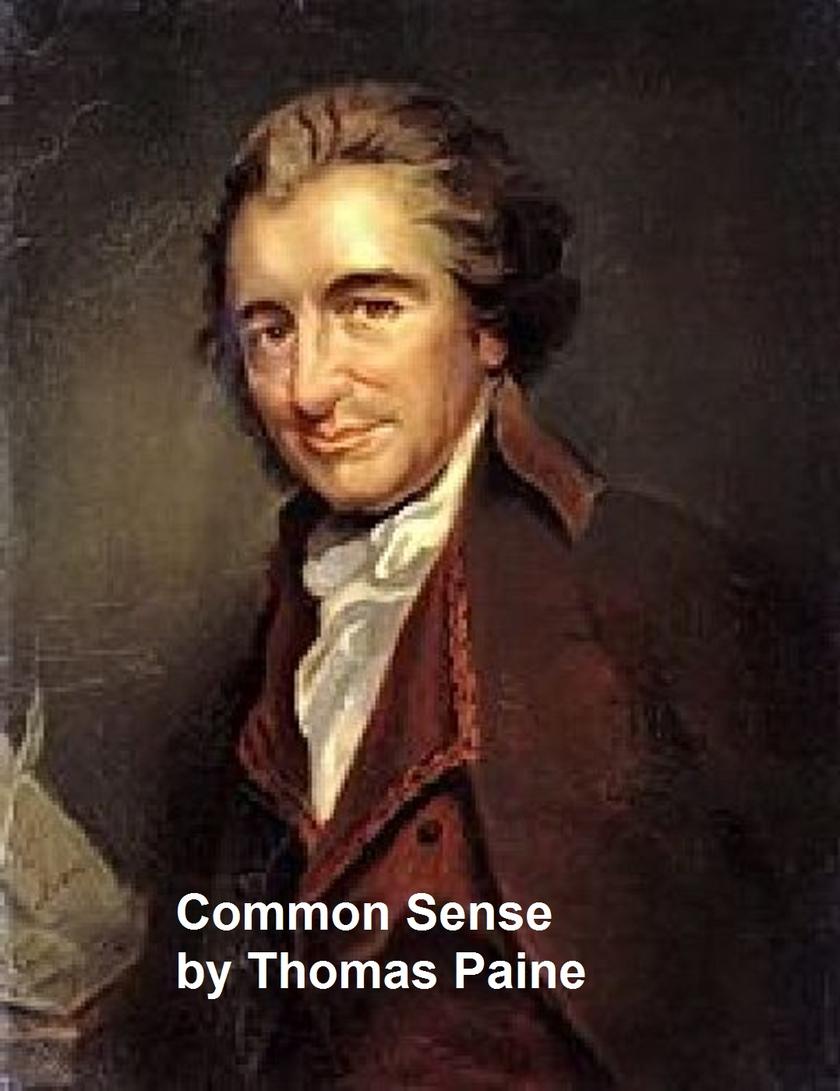
Common Sense
¥8.09
The classic essay that helped ignite the American Revolution. According to Wikipedia: "Thomas Paine (Thetford, England, 29 January 1737 - 8 June 1809, New York City, U.S.) was an English pamphleteer, revolutionary, radical, classical liberal, inventor and intellectual. He lived and worked in Britain until the age of 37, when he migrated to the American colonies just in time to take part in the American Revolution. His main contribution was as the author of the powerful, widely read pamphlet, Common Sense (1776), advocating independence for the American Colonies from the Kingdom of Great Britain, and of The American Crisis, supporting the Revolution."
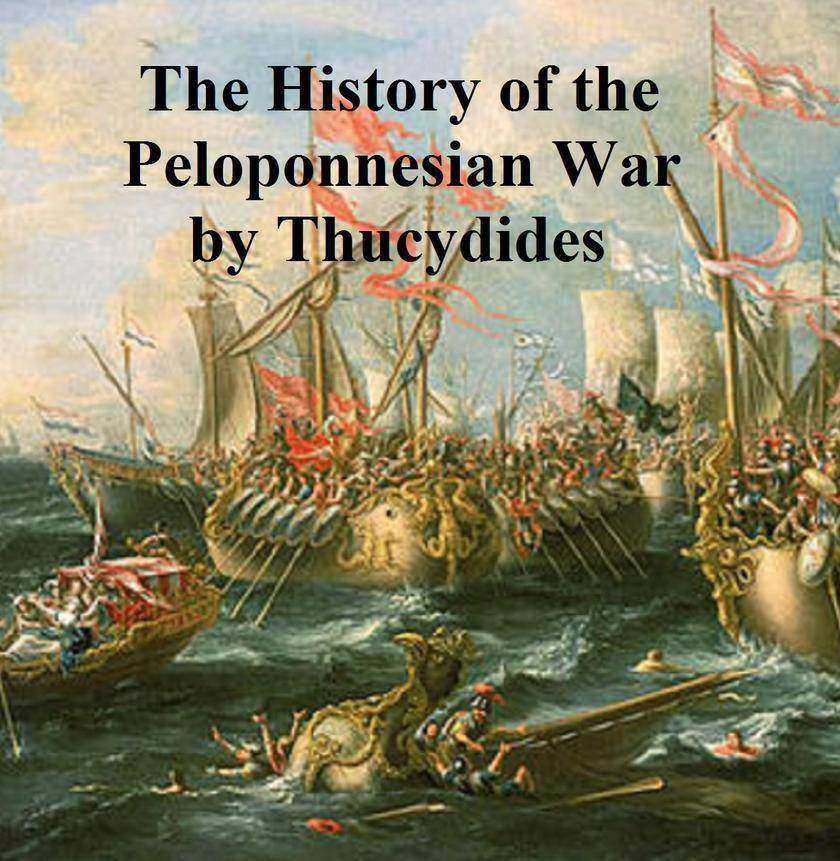
The History of the Peloponnesian War
¥8.09
The classic history of war between Athens and Sparta. According to Wikipedia: "Thucydides (c. 460 B.C. – c. 395 B.C.) was a Greek historian and author of the History of the Peloponnesian War, which recounts the 5th century B.C. war between Sparta and Athens to the year 411 B.C. Thucydides has been dubbed the father of "scientific history" due to his strict standards of evidence-gathering and analysis in terms of cause and effect without reference to intervention by the gods. He has also been called the father of the school of political realism, which views the relations between nations as based on might rather than right. His classical text is still studied at advanced military colleges worldwide, and the Melian dialogue remains a seminal work of international relations theory. More generally, Thucydides showed an interest in developing an understanding of human nature to explain behaviour in such crises as plague and civil war."
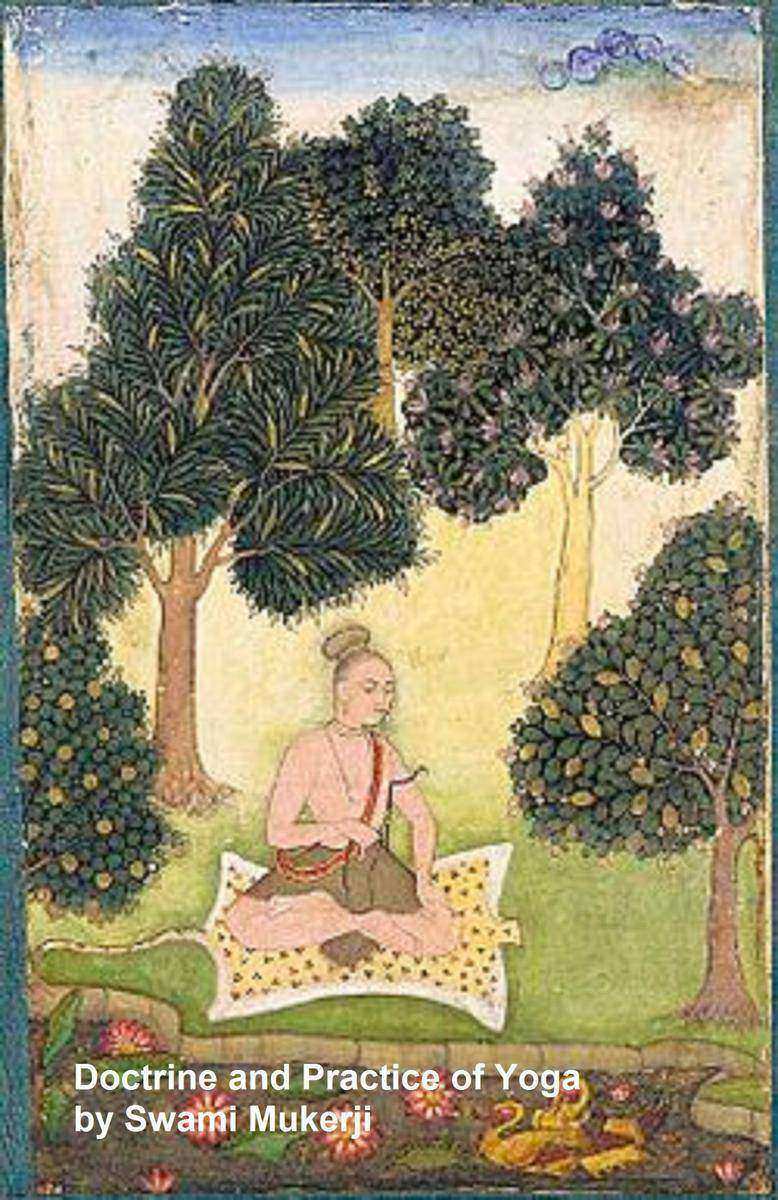
Doctrine and Practice of Yoga
¥8.09
According to Wikipedia: "Yoga is the Hindu practice of physical, mental, and spiritual discipline, originating in ancient India. The goal of yoga, or of the person practicing yoga, is the attainment of a state of perfect spiritual insight and tranquility while meditating on the Hindu concept of divinity or Brahman. The word is associated with meditative practices in Hinduism, Jainism, and Buddhism."
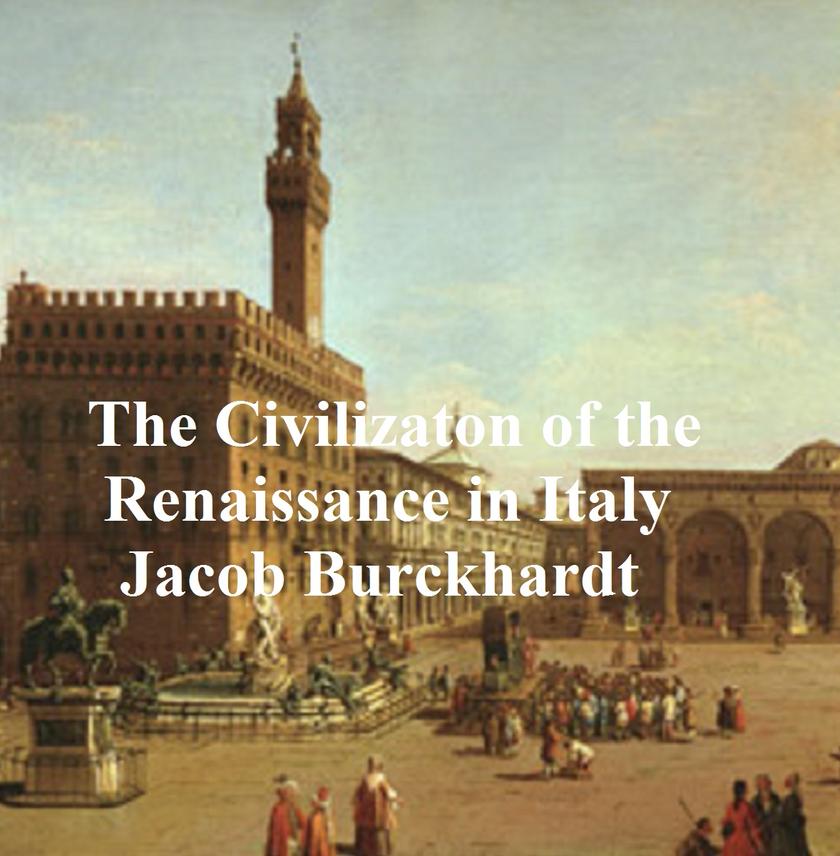
The Civilization of Renaissance in Italy
¥8.09
Classic 19th century history book. According to Wikipedia: "Carl Jacob Christoph Burckhardt (May 25, 1818, Basel, Switzerland – August 8, 1897, Basel) was a historian of art and culture, and an influential figure in the historiography of each field. He is known as one of the major progenitors of cultural history, albeit in a form very different from how cultural history is conceived and studied in academia today. Siegfried Giedion described Burckhardt's achievement in the following terms: "The great discoverer of the age of the Renaissance, he first showed how a period should be treated in its entirety, with regard not only for its painting, sculpture and architecture, but for the social institutions of its daily life as well."Burckhardt's best known work is The Civilization of the Renaissance in Italy (1860).
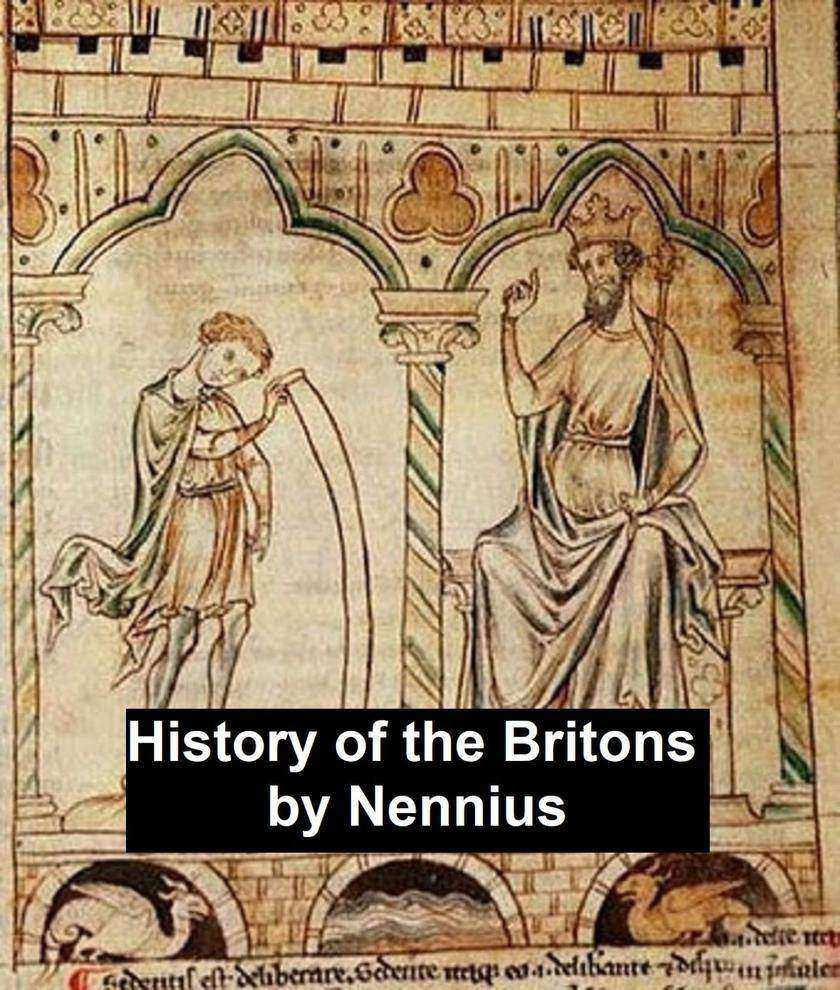
History of the Britons
¥8.09
According to Wikipedia: "Nennius was a Welsh monk of the 9th century. He has traditionally been attributed with the authorship of the Historia Brittonum, based on the prologue affixed to that work, This attribution is widely considered a secondary (10th century) tradition. Nennius was a student of Elvodugus, commonly identified with the bishop Elfodd who convinced British ecclesiastics to accept the Continental dating for Easter, and who died in 809 according to the Annales Cambriae. Nennius is believed to have lived in the area made up by present day Brecknockshire and Radnorshire counties in Powys, Wales. He lived outside the Anglo-Saxon kingdoms, isolated by mountains in a rural society."
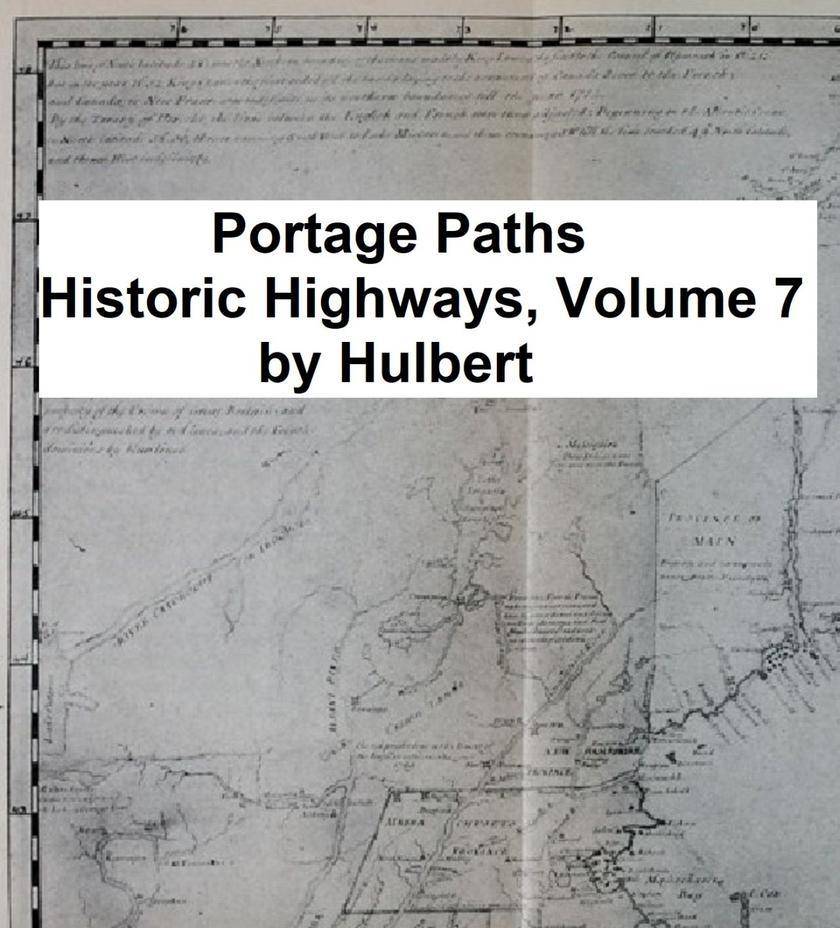
Portage Paths
¥8.09
Volume 7 of the series "Historic Highways of America". According to Wikipedia: "Archer Butler Hulbert (26 Jan 1873 – 24 Dec 1933), historical geographer, writer, and professor of American history... He was Vice-Principal of the Putnam Military Academy, Zanesville, Ohio, until 1897. Hulbert then did newspaper work in Korea in 1897 and '98: he was editor of the Korean Independent (Seoul) and edited Far East American newspapers... He was Professor of American History at Marietta College 1904-18. After Marietta College, Hulbert became a lecturer in American History at Clark University from 1918 to 1919. He also was a lecturer at the University of Chicago in 1904 and 1923; and he served as archivist for the Harvard Commission on Western History (1912-16). Hulbert's last position was at Colorado College, from 1920 until his death... Hulbert's interest in trails dated from fishing trips taken during his college, when he noticed Indian trails. This interest led at first to his 16 volumes of Historic Highways of America (1902-05)."
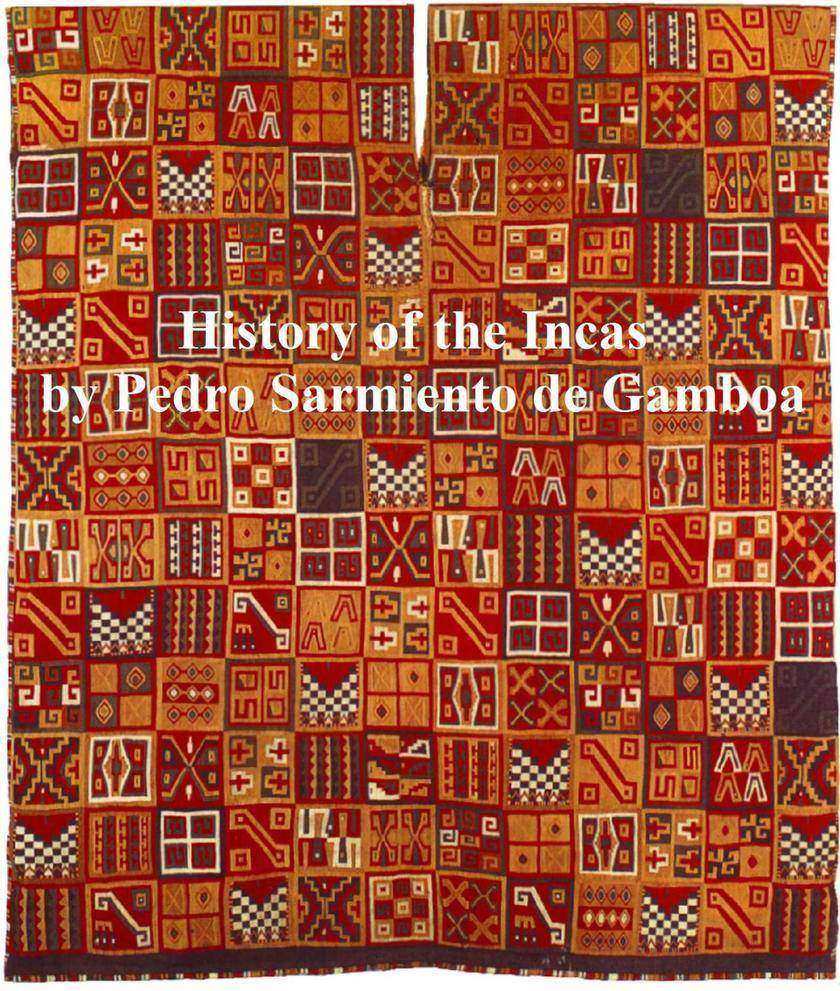
History of the Incas
¥8.09
According to Wikipedia: "Pedro Sarmiento de Gamboa (1532–1592) was a Galician (Spanish) explorer, author, historian, astronomer, and scientist… Written in Cuzco, the capital of the Inca Empire, just forty years after the arrival of the first Spaniards in the city, Sarmiento's The History of the Incas contains extremely detailed descriptions of Inca history and mythology. The royal sponsorship of the work guaranteed Sarmiento direct access to the highest Spanish officials in Cuzco. It also allowed him to summon influential natives, as well as those who had witnessed the fall of the Inca Empire, so that they could relate their stories. Sarmiento traveled widely and interviewed numerous local leaders and lords, surviving members of the royal Inca families, and the few remaining Spanish conquistadors who still resided in Cuzco. Once the first draft of the history was completed, in an unprecedented effort to establish the unquestionable authenticity of the work, his manuscript was read, chapter by chapter, to forty-two indigenous authorities for their commentary and correction. After the public reading, which occurred on 29 February and 1 March 1572, the manuscript was entrusted to a member of the viceroy's personal guard. He was to take the manuscript to Spain and deliver it to King Philip II, along with four painted cloths showing the history of the Incas and a number of other artifacts and objects that Toledo had collected. However, due to a series of unusual events, this irreplaceable document of Inca history was relegated to obscurity for centuries."
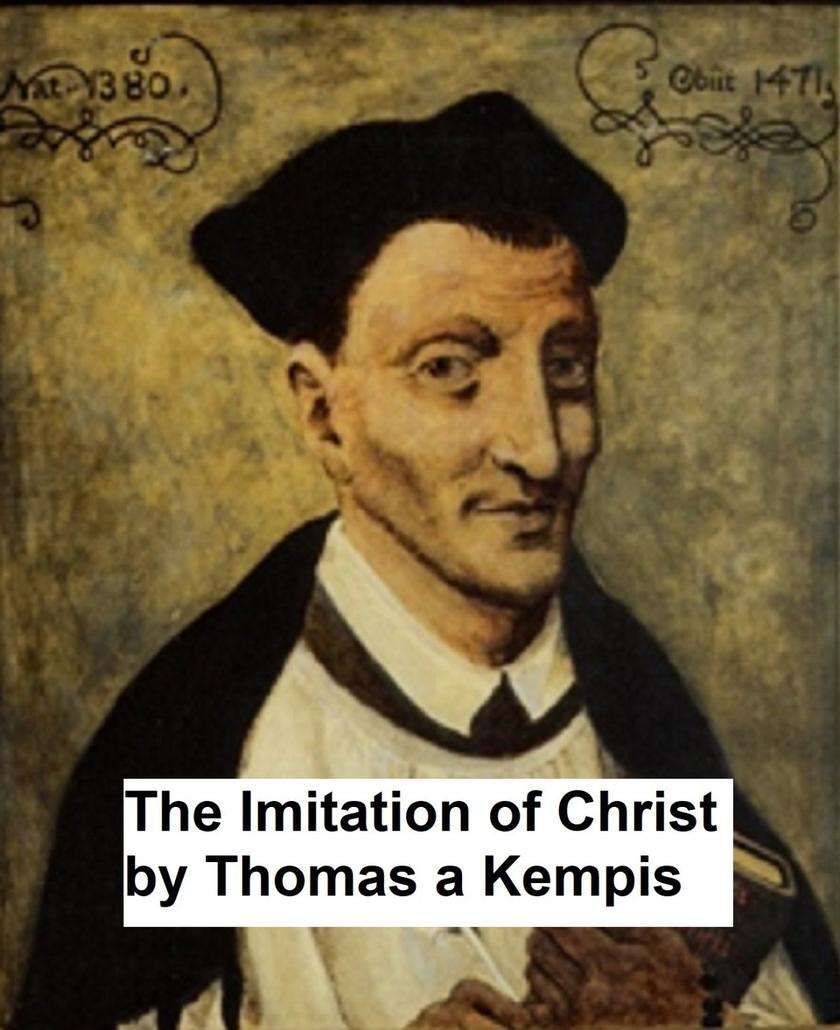
The Imitation of Christ
¥8.09
According to Wikipedia: "The Imitation of Christ (Latin: De Imitatione Christi) by Thomas à Kempis is a Christian devotional book. It was first composed in Latin ca.1418-1427.[1][2] It is a handbook for spiritual life arising from the Devotio Moderna movement, where Kempis was a member.[3] The Imitation is perhaps the most widely read devotional work next to the Bible,[2][4] and is regarded as a devotional and religious classic
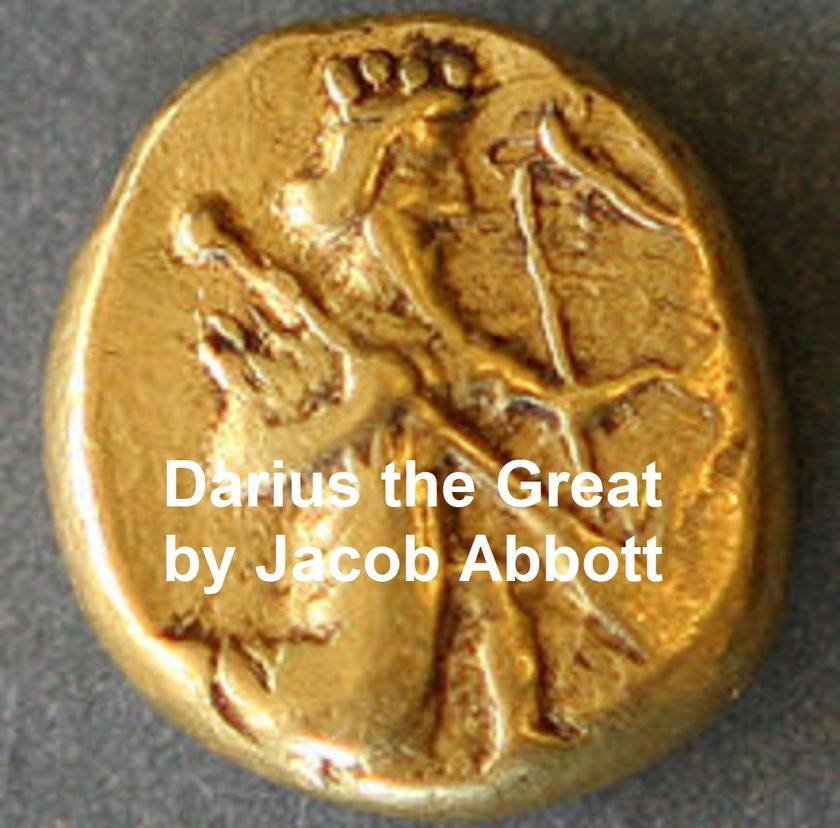
Darius the Great
¥8.09
According to Wikipedia: "Jacob Abbott (November 14, 1803 – October 31, 1879) was an American writer of children's books. Abbott was born at Hallowell, Maine to Jacob and Betsey Abbott. He graduated from Bowdoin College in 1820; studied at Andover Theological Seminary in 1821, 1822, and 1824; was tutor in 1824-1825, and from 1825 to 1829 was professor of mathematics and natural philosophy at Amherst College; was licensed to preach by the Hampshire Association in 1826; founded the Mount Vernon School for Young Ladies in Boston in 1829, and was principal of it in 1829-1833; was pastor of Eliot Congregational Church (which he founded), at Roxbury, Massachusetts in 1834-1835; and was, with his brothers, a founder, and in 1843-1851 a principal of Abbott's Institute, and in 1845-1848 of the Mount Vernon School for Boys, in New York City. He was a prolific author, writing juvenile fiction, brief histories, biographies, religious books for the general reader, and a few works in popular science. He died in Farmington, Maine, where he had spent part of his time after 1839, and where his brother, Samuel Phillips Abbott, founded the Abbott School."
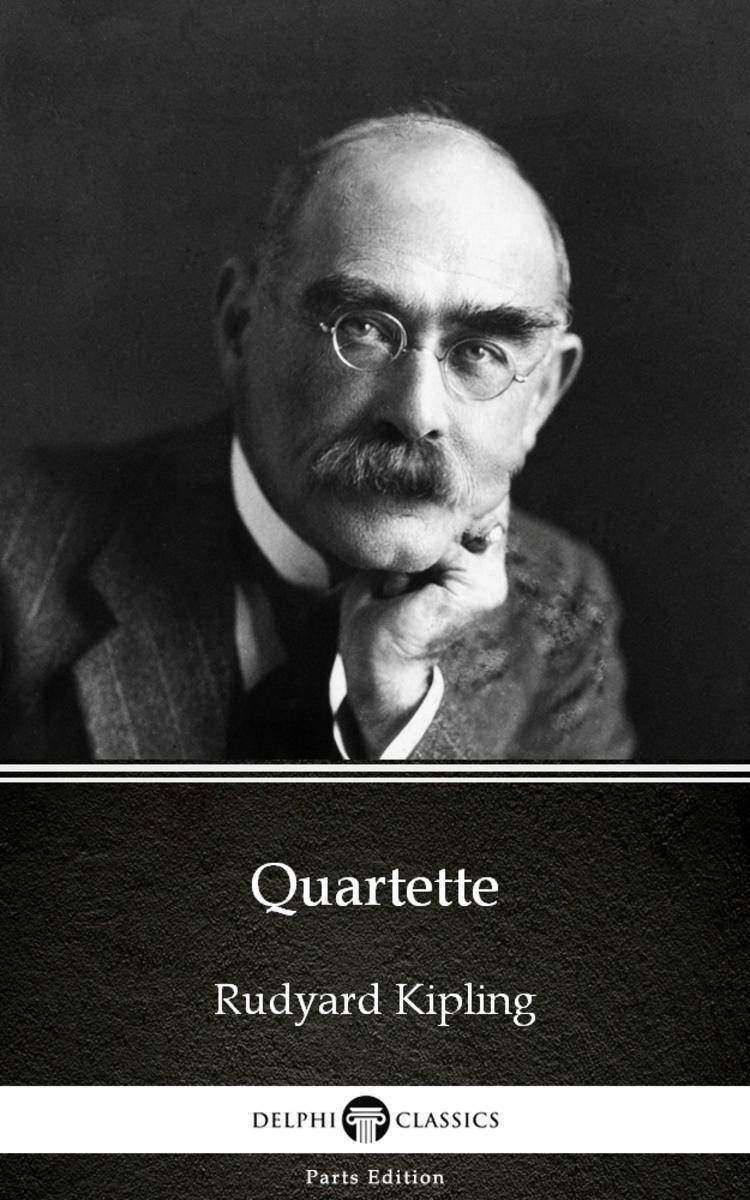
Quartette by Rudyard Kipling - Delphi Classics (Illustrated)
¥8.09
This eBook features the unabridged text of ‘Quartette by Rudyard Kipling - Delphi Classics (Illustrated)’ from the bestselling edition of ‘The Complete Works of Rudyard Kipling’. Having established their name as the leading publisher of classic literature and art, Delphi Classics produce publications that are individually crafted with superior formatting, while introducing many rare texts for the first time in digital print. The Delphi Classics edition of Kipling includes original annotations and illustrations relating to the life and works of the author, as well as individual tables of contents, allowing you to navigate eBooks quickly and easily. eBook features: * The complete unabridged text of ‘Quartette by Rudyard Kipling - Delphi Classics (Illustrated)’ * Beautifully illustrated with images related to Kipling’s works * Individual contents table, allowing easy navigation around the eBook * Excellent formatting of the text Please visit www.delphiclassics.com to learn more about our wide range of titles
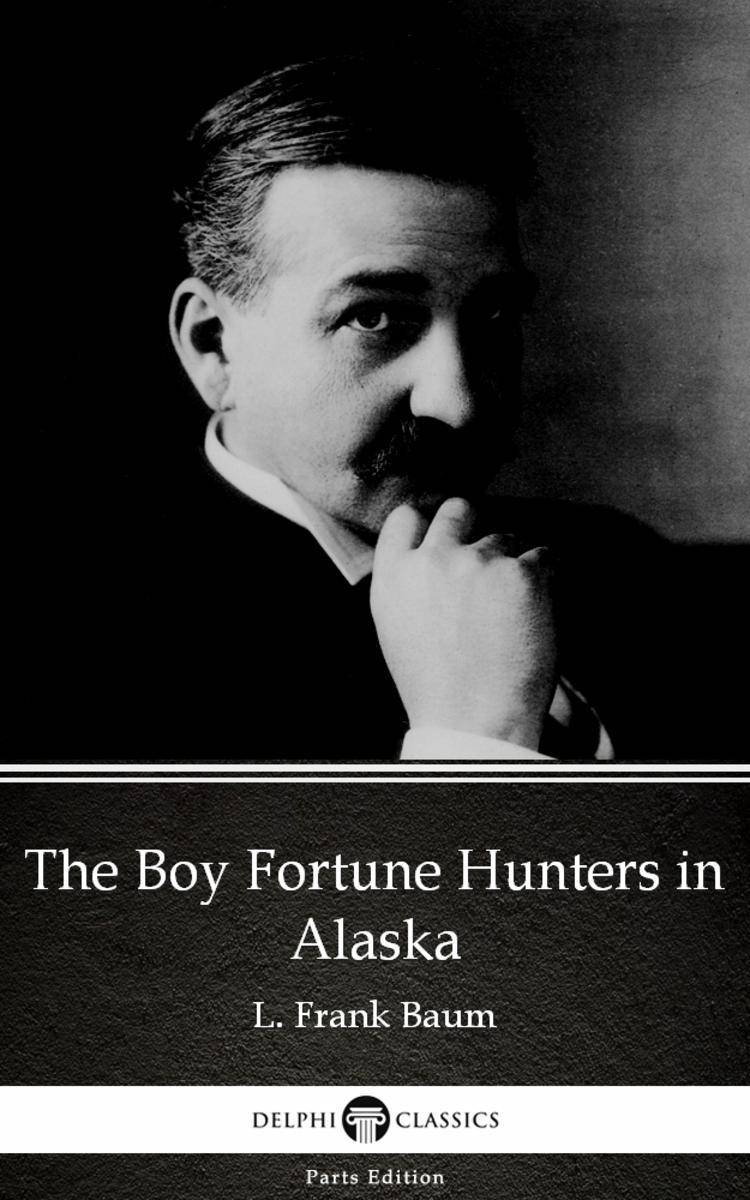
The Boy Fortune Hunters in Alaska by L. Frank Baum - Delphi Classics (Illustrate
¥8.09
This eBook features the unabridged text of ‘The Boy Fortune Hunters in Alaska by L. Frank Baum - Delphi Classics (Illustrated)’ from the bestselling edition of ‘The Complete Works of L. Frank Baum’. Having established their name as the leading publisher of classic literature and art, Delphi Classics produce publications that are individually crafted with superior formatting, while introducing many rare texts for the first time in digital print. The Delphi Classics edition of Baum includes original annotations and illustrations relating to the life and works of the author, as well as individual tables of contents, allowing you to navigate eBooks quickly and easily. eBook features: * The complete unabridged text of ‘The Boy Fortune Hunters in Alaska by L. Frank Baum - Delphi Classics (Illustrated)’ * Beautifully illustrated with images related to Baum’s works * Individual contents table, allowing easy navigation around the eBook * Excellent formatting of the text Please visit www.delphiclassics.com to learn more about our wide range of titles
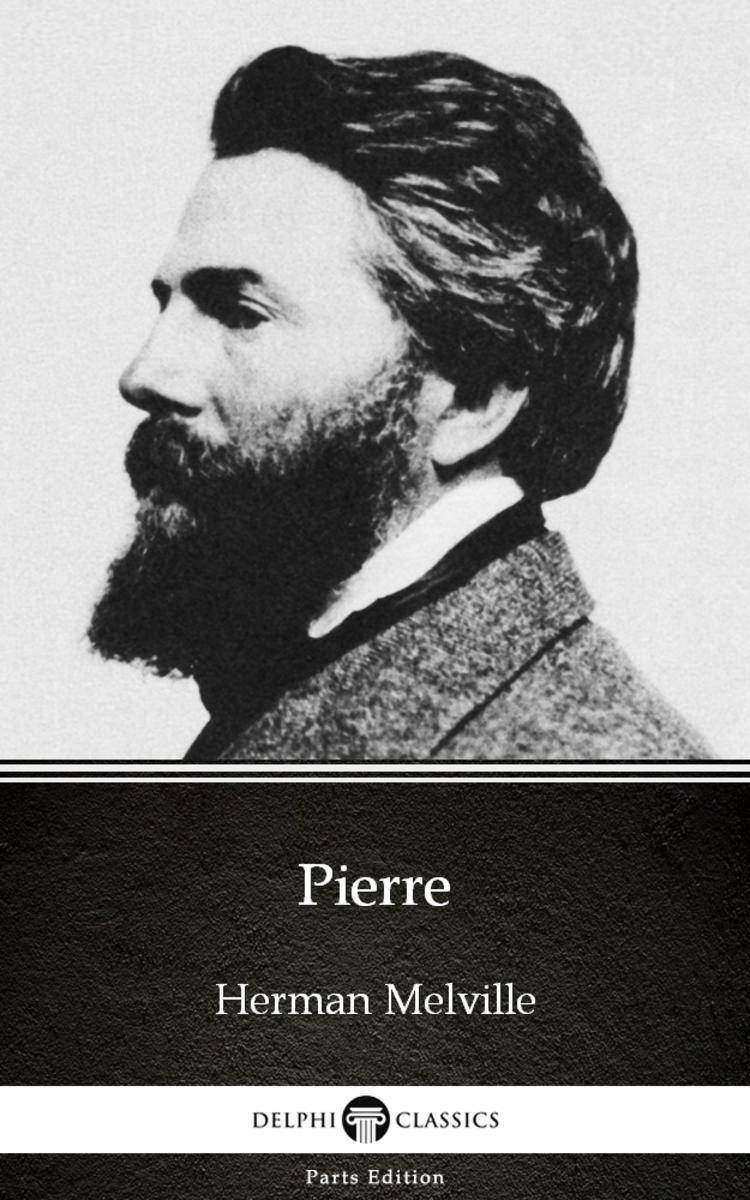
Pierre by Herman Melville - Delphi Classics (Illustrated)
¥8.09
This eBook features the unabridged text of ‘Pierre by Herman Melville - Delphi Classics (Illustrated)’ from the bestselling edition of ‘The Complete Works of Herman Melville’. Having established their name as the leading publisher of classic literature and art, Delphi Classics produce publications that are individually crafted with superior formatting, while introducing many rare texts for the first time in digital print. The Delphi Classics edition of Melville includes original annotations and illustrations relating to the life and works of the author, as well as individual tables of contents, allowing you to navigate eBooks quickly and easily. eBook features: * The complete unabridged text of ‘Pierre by Herman Melville - Delphi Classics (Illustrated)’ * Beautifully illustrated with images related to Melville’s works * Individual contents table, allowing easy navigation around the eBook * Excellent formatting of the text Please visit www.delphiclassics.com to learn more about our wide range of titles
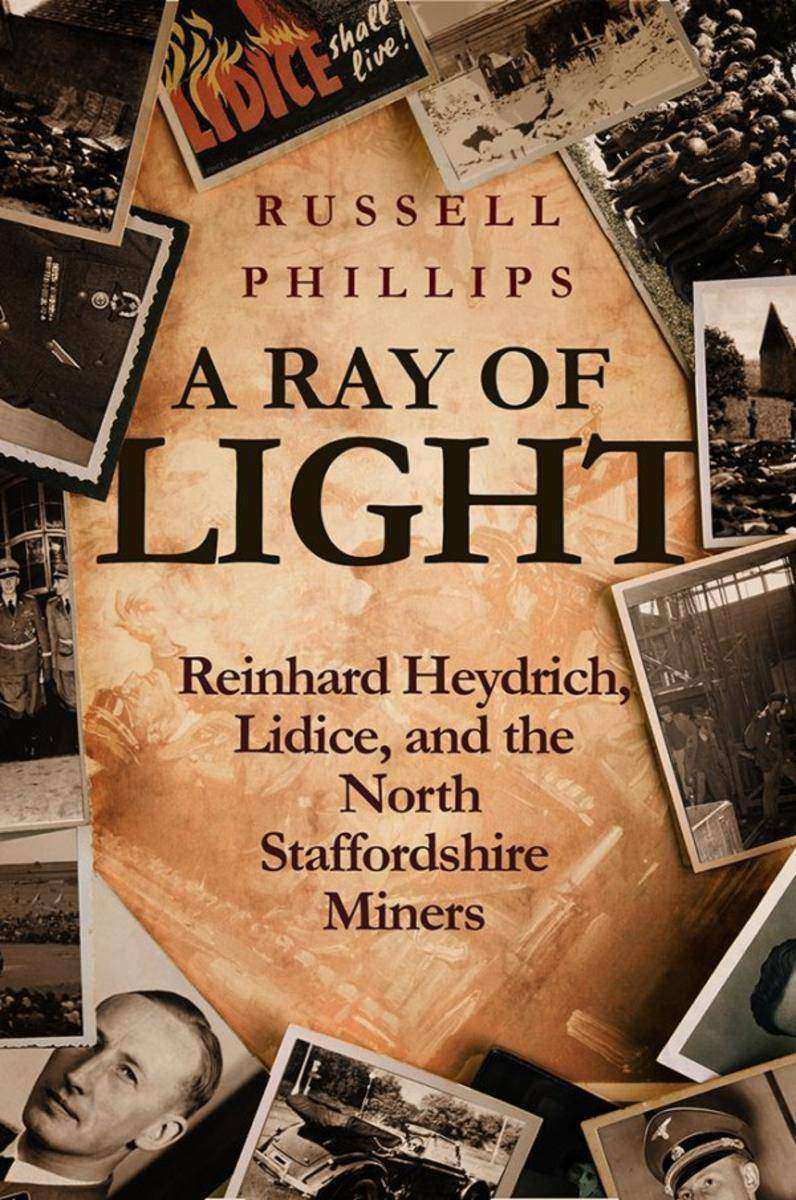
A Ray of Light:Reinhard Heydrich, Lidice, and the North Staffordshire Miners
¥24.44
This is the inspiring true story of what happens when ordinary people unite to make a stand against evil. Lidice was a peaceful and vibrant community in Czechoslovakia with a rich mining heritage. But an act of Nazi revenge saw this village wiped from existence in a horrifying chapter of European history. Disaster struck for Lidice in 1942 when the prominent Nazi official Reinhard Heydrich was assassinated. Described by Hitler as "the man with an iron heart", Heydrich was one of the key architects of the Holocaust. His death, after an attack by members of the Czech resistance, left Hitler furious and desperate for vengeance. Looking for a scapegoat to blame for Heydrich's death, he settled on the village of Lidice, which had been falsely linked to the assassination. In a brutal act which shocked the world, Lidice was completely destroyed. The men were shot while the women and children were rounded up and sent to their deaths in Nazi concentration camps. Hitler was determined that by the time he had finished, no one would even remember Lidice, let alone live there. What he hadn't reckoned on was the efforts of a group of campaigners in Britain, who resolved to make sure Lidice would never be forgotten. A Ray of Light tells the tale of Lidice's downfall and what happened next. Would the village simply be allowed to become a footnote in history, or would it rise from the ashes and forge a new future? This book is a compelling testament to the power of friendship and solidarity, and how empathy and compassion can help rebuild the world.

The Faerie Prince
¥38.07
Action, intrigue, and romance to swoon for! With graduation just weeks away, guardian trainee Violet Fairdale is determined to claim the top spot in her class. But first, she’ll have to survive her final assignment—and the guy she’s been forced to partner with. Her confusing feelings for Ryn aren’t the only thing making life difficult, though.?With enchanted storms wreaking havoc in the fae realm, a murder within the Guild, and an Unseelie prince still determined to possess Vi’s special magic, graduation is about to become the least of her problems. Perfect for fans of The Mortal Instruments, The Iron Fey, and Graceling.

Povestea fetitei pierdute
¥81.67
Una dintre cele mai mari romanciere contemporane" -The New York Times Book Review Odat cu acest ultim volum remarcabil alTetralogiei Napolitane, Elena Ferrante transform povestea despre Lila i Elena ntr-o epopee extraordinar care se ntinde de-a lungul a ase decenii i se constituie ntr-un portret al unui cartier, al unui ora n tranziie i al unei ri ce-i croiete drum cu greu prin prima jumtate a secolului XX. -The New York Times nPovestea fetiei pierdute, Elena Lila au ajuns acum la vrsta maturitii; amndou au avut parte att de mpliniri, ct i de eecuri. Dincolo de toate, prietenia lor a rmas punctul n jurul cruia le graviteaz vieile.Au luptat s scape de cartierul srccios din Napoli n care au crescut. Elena s-a cstorit, s-a mutat la Florena i a publicat cteva cri bine primite. n acest ultim volum al tetralogiei, asistnd neputincioas la disoluia lumii pe care i-a creat-o, decide s se ntoarc la Napoli. Lila, de pe alt parte, n-a reuit niciodat s se ndeprteze de oraul copilriei. A nceput o afacere de succes, dar asta a adus-o mai aproape de conflictele violente din snul comunitii mcinate de ur, ovinism i agresivitate.Cele dou eroine se atrag, se resping, se influeneaz reciproc, se ndeprteaz i apoi se regsesc, se invidiaz i se admir la nesfrit. Viaa le supune la noi provocri, dar Lila i Elena descoper, fiecare n ea nsi, dar i n cealalt, fora necesar pentru a merge mai departe.Pe fundalul unui Napoli pe ct de seductor, pe att de periculos i al unei lumi aflate ntr-o transformare radical, povestea prieteniei de o via dintre cele dou protagoniste este spus cu un talent i o sinceritate inegalabile. Cele patru volume constituie o saga impresionant la care simi nevoia s te ntorci i care i aduce noi revelaii de fiecare dat.Acest remarcabil ultim volum confirm faptul cTetralogia Napolitaneste capodopera Elenei Ferrante. -Publishers Weekly RomaneleTetralogiei Napolitanesunt construite pe mai multe planuri, iar Ferrante mbin perfect felul de a povesti cu efectele stilistice cu totul speciale. -The Independent Elena Ferrante este pseudonimul unei romanciere italiene. A publicat ase cri, printre careL’amore molesto (dup care Mario Martone a fcut un film omonim) iZilele regsirii mele, descris ca rvitoare" deNew York Timesi ecranizat de Roberto Faenza.La Pandora M au aprut primele dou romane ale Tetralogiei Napolitane:Prietena mea genialiPovestea noului nume.Toat lumea ar trebui s citeasc orice poart semntura Elenei Ferrante.The Boston GlobePersonajele feminine ale Elenei Ferrante sunt autentice opere de art.El País

Bebidas naturais para a sua saúde:34 sucos frescos & smoothies
¥9.16
Um suco fresco natural o um smoothie para a sua saúde? Gostaria de saber como usar frutas e legumes para fazer sucos frescos e melhorar sua saúde? A vida também é feita de prazeres simples que podem se transformar com facilidade em pura felicidade Nossa cole??o de guias práticos ? eGuide Nature ? vai provar isso para você! Desejamos compartilhar o nosso conhecimento e as nossas dicas úteis para simplesmente ? domesticar ? a natureza da qual a vida moderna às vezes nos afasta… N°0 - Bebidas naturais para a sua saúde O que você vai encontrar neste ? eGuide Nature ?? Nossas dicas para preparar seus sucos frescos & smoothies curativos Propriedades curativas de frutas e legumes 84?receitas de sucos e smoothies Ent?o, você está pronto(a) para trazer a natureza em sua vida? Vamos! Sinceramente, Cristina & Olivier Rebiere

M?na c??tig?toare
¥7.36
SERIA ?FAMILIA MACGREGOR“La dou?zeci ?i patru de ani, Darcy Wallace simte c? via?a nu-i mai poate oferi nimic: i-ar pl?cea o carier? de scriitoare, dar se plafoneaz? ca bibliotecar? ?ntr-un or??el din Kansas; ?i-ar dori o aventur? sentimental? ca-n pove?ti, dar abia reu?e?te s? scape de b?rbatul rigid, f?r? sim?ul umorului, cu care este logodit?; viseaz? la o ma?in? sport, dar are parte de o rabl? care se stric? atunci c?nd se a?teapt? mai pu?in. Dintr-un impuls de moment, hot?r??te s?-?i caute norocul la Vegas... unde, miz?ndu-?i ultimii dolari, are parte de o surpriz? de propor?ii – c??tig? aproape dou? milioane de dolari. Brusc, t?n?ra venit? dintr-un mic or??el devine o celebritate – ?i are nevoie de protec?ie.Dar banii aduc fericirea? Este posibil, ?n cazul lui Darcy, mai ales c? Robert MacGregor Blade, directorul cazinoului, este dornic s-o ?ndrume prin lumea str?lucitoare, dar plin? de pericole a Vegasului. Rela?ia lor, la ?nceput strict profesional?, alunec? ?n scurt timp pe o pant? romantic?. Darcy ?tie ce-?i dore?te: o ?ans? cu Robert. Va reu?i ?ns? de data asta s?-?i gestioneze corect ocazia nesperat??

A Faerie's Secret
¥32.62
Join beloved characters and new heroes as the bestselling Creepy Hollow series continues ten years after the events of The Faerie War! Calla Larkenwood wants nothing more than to be a guardian, but her overprotective mother has never allowed it. Battling fae creatures is too dangerous a job for a young girl, and there’s that pesky magical ability she needs to keep hidden from the Guild. How can she do that if she’s working right under their nose? When circumstances change and Calla finally gets to follow her dream, she discovers guardian trainee life isn’t all she hoped it would be. Her classmates are distant, her mentor hates her, and keeping her ability a secret is harder than she thought. Then an Underground initiation game goes wrong, landing Calla with a new magical ability she can’t control. She needs help—and the only way to get it is by bargaining with the guy who just discovered her biggest secret. Perfect for fans of The Mortal Instruments, The Iron Fey, and Graceling.

Amintiri din copil?rie. Pove?ti, povestiri, nuvele
¥0.01
“Dragi mi-erau tata ?i mama, fra?ii ?i surorile ?i b?ie?ii satului, tovar??ii mei de copil?rie, cu cari, iarna, ?n zilele geroase, m? desf?tam pe ghea?? ?i la s?niu?, iar vara ?n zile frumoase de s?rb?tori, c?nt?nd ?i chiuind, cutreieram dumbr?vile ?i luncile umbroase, ?arinele cu holdele, c?mpul cu florile ?i m?ndrele dealuri, de dup? care ?mi z?mbeau zorile, ?n zburdalnica v?rst? a tinere?ii! Asemenea, dragi mi-erau ?ez?torile, cl?cile, horile ?i toate petrecerile din sat, la care luam parte cu cea mai mare ?nsufle?ire.

Ketogenic Cookbook:Quick And Easy Ketogenic Diet Recipes For Fasting
¥0.01
Be Happier and Healthier Starting Today! Are You Tired of Feeling Out Of Shape? Want to Start A Diet That Will Allow You to Change Your Life Forever? This Ketogenic Cookbook: Quick And Easy Ketogenic Diet Recipes you can easily prepare is an excellent guide to those who want to lose weight and get slim over the small period of time. In today’s world where one’s figure is the first thing that represents him or her, one should take care extra care of it not only because of the impression that it leaves on others but also because of the sake of having healthy and quality wiseexcellent life. We will get into detail in the book but for now take a general look on what this book offers: Ketogenic diet and its unlimited benefits Ketogenic diet recipes: For the breakfast Ketogenic diet recipes: For the lunch time Ketogenic diet recipes: For dinner Get the jumpstart to a newer you and a better life by grabbing this book.

Medita??es
¥79.35
Enquanto imperador, sou importante em Roma; enquanto homem, sou igual a qualquer um no mundo. Marco Aurélio Meditaes é a única obra de Marco Aurélio que chegou até nós. Composta por doze livros, em forma de máximas, apresenta reflexes marcadas pelo Estoicismo. Marco Aurélio considerava-se um cidado do mundo — ou melhor, do Universo. Para ele, a igualdade e a fraternidade entre os homens obrigavam a uma ateno constante aos atos sociais, a nunca censurar os deuses nem os seres humanos e a aceitar os acontecimentos como a expresso simples da lei do Universo. Esta obra é o livro de um homem de ao, que procura a serenidade, indispensável à eficácia, mas também de um homem para o qual os atos humanos apenas possuem um valor profundo e duradouro se se enquadrarem na perspetiva do Todo do Universo e da comunidade de todos. Muito mais do que uma compilao de pensamentos filosóficos, Meditaes é um manual de comportamento perfeitamente atual, que apela à reflexo sobre como podemos melhorar o nosso modo de vida e o nosso relacionamento com os outros.




 购物车
购物车 个人中心
个人中心



